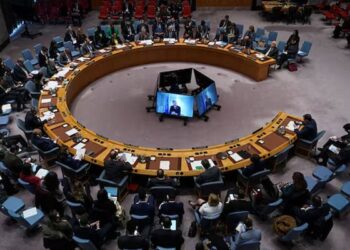The 61st Munich Security Conference: A Critical Analysis of Global Power Dynamics
The ongoing landscape of international security is under scrutiny as the 61st Munich Security Conference unfolds this weekend. The conference brings together policymakers, leaders, and experts to discuss pressing global issues while releasing insightful annual reports that dissect the state of global security and the international order. This year, the focus has shifted toward the evolving notion of "multipolarization" in world politics, highlighting the growing divisions between traditional superpowers.
Understanding Multipolarization
The term multipolarity refers to a geopolitical landscape in which multiple nations hold significant power and influence, as opposed to a unipolar or bipolar system dominated by one or two major powers. This shift to multipolarity has crucial implications for global diplomacy and security strategies, raising questions about collaboration, governance, and the potential for conflict among rising powers.
Key Findings from the Munich Security Conference Report
The report released ahead of the conference paints a complex picture of today’s international order, particularly emphasizing the challenges posed by widening rifts between recognized superpowers. The authors express concern over how these divisions could complicate collective responses to global threats, such as pandemics, terrorism, and climate change.
The Divisions Among Superpowers
As countries negotiate their positions on the world stage, divisions appear to be growing. The report argues that these divisions hinder cooperation on critical issues, making it increasingly difficult for nations to approach crises with a united front. The traditional alliances are being tested, and the concept of shared governance is strained as nations become more assertive about their individual interests.
The Role of China in the Evolving World Order
The report singles out China as a significant proponent of a multipolar world order. As the country maneuvers to establish itself firmly as a global superpower, it may capitalize on the United States’ potential withdrawal from its international commitments. This shift could see China filling the void left by the U.S., especially in regions where Washington has historically had significant influence.
Impact of U.S. Foreign Policy
The forthcoming U.S. elections and the possibility of Donald Trump’s re-election add another layer of complexity. Should Trump return to office, his tendency to alienate long-standing allies could further open opportunities for China to enhance its global standing. As the U.S. navigates internal divisions and foreign engagements, other nations may leverage these changes to bolster their own positions in the global hierarchy.
Perspectives from Around the Globe
The report also incorporates survey data from various nations, revealing differing perceptions of power dynamics. Notably, countries like Japan, India, and even the U.S. view America as the current dominant superpower, reinforcing the notion of America’s traditional hold on international affairs.
Diverse Outlooks on Global Power
More than a third of respondents from 11 countries regard both the U.S. and China as dominant powers. Importantly, nearly 24% of those surveyed believe that in today’s world, various other powers can significantly influence global affairs, indicating a recognition of the shifting dynamics that accompany multipolarity.
The Opportunity for Smaller Nations
In this landscape of evolving power, smaller nations might find opportunities to assert their influence amid the fractures between major powers. As traditional alliances become less predictable, emerging nations can carve out their roles in international relations, potentially leading to new coalitions and partnerships that redefine global governance structures.
This analysis illustrates the intricate web of power dynamics discussed during the 61st Munich Security Conference. As superpowers navigate their roles and emerging nations seek new pathways to influence, the global order remains in flux, raising critical questions about future cooperation and conflict in the international arena.





